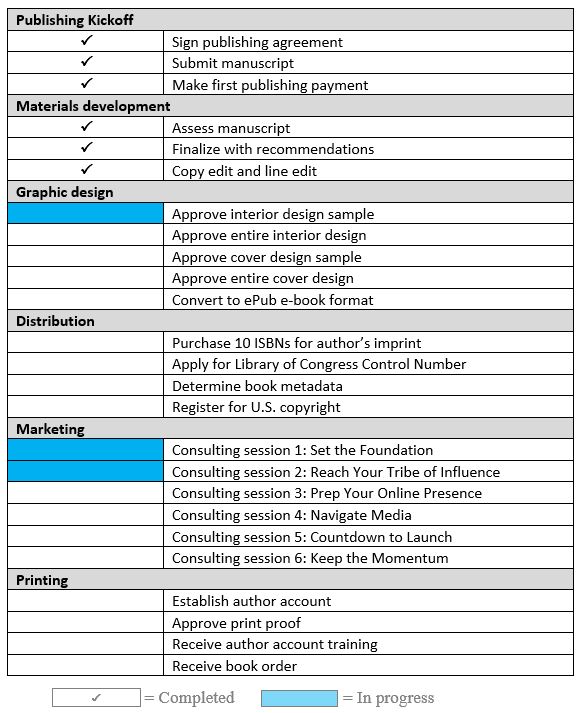Are you still committed to a book publishing or marketing goal you’ve set for yourself this year? If so, you’ve already overcome some pretty big odds.
You’ve hurdled January 14, when most people who made New Year’s resolutions throw in the towel. It’s even got a name: Quitter’s Day. You’ve also made it past mid-February, when another 80 percent of New Year’s resolutions fail.
What now?
Here are three tips to make sure you stick to your book goals this year . . .

Define your “big why.”
Lasting accountability requires defining and remembering your bigger purpose.
It’s nice when people say, “I want to publish a book.” But it’s amazing when people say, “I want to publish a book that improves the lives of others.”
Remain crystal-clear on the value of your book. Authors who hold tightly to their purposes tend to stay motivated through the ups and downs of book publishing and marketing, like Dr. Alanna Bree. You can read here how her “big why” drove the pediatric dermatologist to quit her job, establish a nonprofit, and publish a book.
Find accountability.
Of all the reasons authors work with me, one of the simplest but most powerful is accountability. It’s harder to ditch a plan when you have money on the line and someone prompting your next step.
A publishing and marketing pro can help you set goals that are specific, measurable, attainable, relevant, and time-oriented. In addition to providing unbiased feedback, a pro can help you identify and move past self-sabotaging patterns or fears.
You can also up the ante and go public with your plan. Mike Kowis, a tax attorney and adjunct professor, shared here what happened when he posted on Facebook his plan to write and publish a book in a year. (Spoiler alert: Things didn’t go as planned, but the public pressure eventually worked.)
Track your progress.
There’s a reason why personal finance guru Dave Ramsey uses the “Debt Snowball Method” to help people get rid of debt. He understands that sticking to a goal is less about knowledge and more about behavior. Rather than tackling the largest debt first and eventually losing steam, Dave advises starting with the smallest debt and making quick progress. As each small debt is paid off, the momentum builds until people find themselves living debt-free!
Harvard Business Review calls it the “progress principle.” After exhaustive analysis of workers’ journals, a study concluded that of all the things that can boost emotions, motivation, and perceptions, the single most important is making progress in meaningful work.
It’s important to measure your progress by breaking your macro-goal into step-by-step micro-goals. Here’s a look at the milestones along one author’s journey to publication. We review her progress each month to help her stay focused and motivated.

Michael Jordan once said, “Some people want it to happen. Some wish it would happen. Others make it happen.” This year, define your “why,” find accountability, track your progress – and make it happen!



